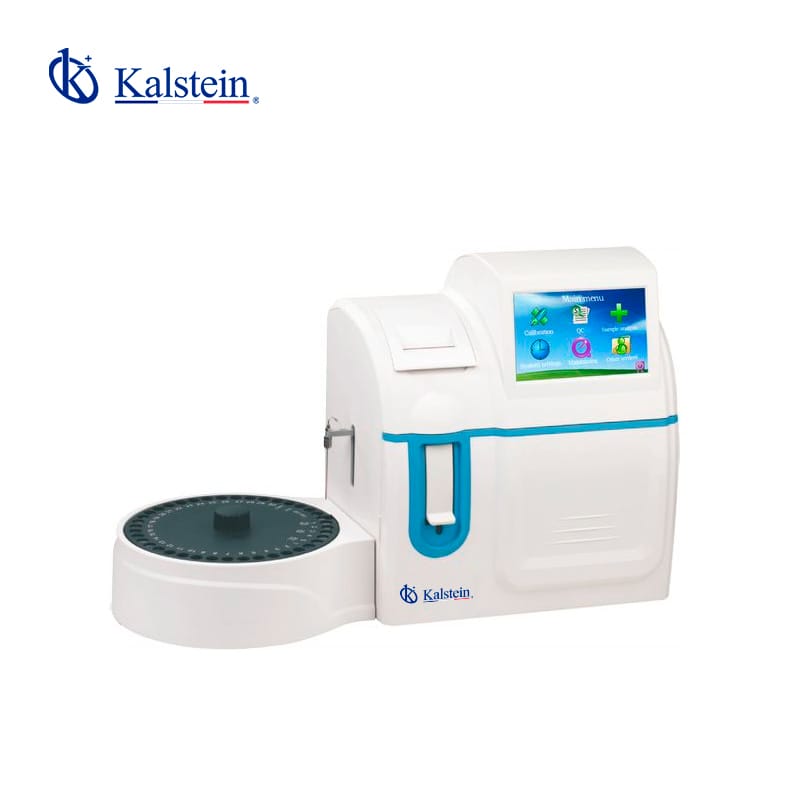When it comes to electrolyte analyzers, precision and reliability are key factors to consider. The Electrolyte Analyzer YR06407// YR06417 by Kalstein stands out due to its advanced features and user-friendly design. On the other hand, the Roche ISE Module 9180 is a popular choice in many laboratories for its consistent performance. Both products serve the critical function of measuring electrolyte levels in various biological fluids, which is essential for diagnosing and treating medical conditions.
The Kalstein Electrolyte Analyzer YR06407// YR06417 is recognized for its cutting-edge technology that facilitates precise measurements with minimal maintenance. It is equipped with an intuitive interface that simplifies laboratory workflows. Additionally, its versatility allows it to measure multiple parameters simultaneously, enhancing the overall efficiency. Comparatively, the Roche ISE Module 9180 is known for its robust build and dependable results. It is designed to complement existing laboratory setups and integrates seamlessly with a wide array of laboratory equipment. However, when considering the overall functionality and ease of use, Kalstein offers a noteworthy advantage with enhanced features tailored to streamline operations.
| Feature | Kalstein YR06407// YR06417 | Roche ISE Module 9180 |
|---|---|---|
| Measurement Parameters | Multiple and customizable | Standard set of parameters |
| User Interface | Intuitive and user-friendly | Functional but less intuitive |
| Maintenance | Low maintenance requirements | Regular maintenance required |
| Compatibility | Wide laboratory integration | Limited third-party compatibility |
How They Work
The Kalstein Electrolyte Analyzer YR06407// YR06417 operates by utilizing ion-selective electrodes to measure ion concentration in blood, serum, plasma, and urine samples. Its sophisticated design ensures accuracy and precision in readings. The automated calibration and maintenance procedures greatly reduce the downtime and optimize usage.
The Roche ISE Module 9180 also employs ion-selective electrode technology. It automates the sampling process, focusing on delivering consistent results across repeated tests. While this model is reliable, it lacks some of the advanced automation features present in Kalstein’s model, which simplifies both the user experience and result accuracy.
Purpose
Both electrolyte analyzers are essential tools in clinical settings, predominantly used in hospital laboratories, clinics, and research centers. They provide critical insights into the electrolyte balance in patients, aiding in the diagnosis of conditions such as electrolyte imbalances, renal dysfunction, and metabolic disturbances.
Types
Electrolyte analyzers generally fall into two categories based on their technology: direct ISE and indirect ISE. The Kalstein YR06407// YR06417, with its direct ISE method, provides fast and accurate results, minimizing sample preparation errors. The Roche ISE Module 9180 typically utilizes an indirect ISE method, which, while efficient, may require additional steps for sample calibration.
Market Price
In the current market, the price of electrolyte analyzers can vary based on features and brand reputation. The Kalstein Electrolyte Analyzer YR06407// YR06417 is competitively priced, generally in the mid-to-upper price range, considering its advanced features and low maintenance cost. The Roche ISE Module 9180 is often priced similarly but might incur higher long-term costs due to its maintenance requirements.
Frequently Asked Questions
What parameters can the Kalstein Electrolyte Analyzer measure?
The Kalstein YR06407// YR06417 can measure sodium, potassium, calcium, and chloride concentrations, among other ions.
How often does the Roche ISE Module require maintenance?
Regular maintenance is often recommended to ensure consistent performance, typically on a monthly or bi-monthly basis.
Advantages and Disadvantages
Kalstein YR06407// YR06417 Advantages:
- High accuracy and precision.
- Intuitive user interface.
- Automated calibration reduces manual workload.
- Low maintenance requirements.
- Economical in the long term due to low upkeep costs.
Disadvantages:
- Initial cost may be higher, but justified by its features.
Roche ISE Module 9180 Advantages:
- Proven track record with reliable performance.
- Good integration with existing lab equipment.
Disadvantages:
- Requires regular maintenance.
- Less automation compared to newer models.
Use in the Field
In practice, the Kalstein Electrolyte Analyzer YR06407// YR06417 is used in various medical laboratories and research centers, appreciated for its efficiency and reduced need for recalibration. It significantly aids in monitoring patients with electrolyte imbalances, delivering quick and accurate results. Conversely, the Roche ISE Module 9180 is often utilized in longstanding laboratory setups, appreciated for its durability.
Recommendations
For optimal performance, it is recommended to regularly clean and calibrate the electrolyte analyzers to ensure precision. For the Kalstein model, take advantage of its automation features to schedule maintenance checks automatically, ensuring longevity and reliability. For the Roche model, users should establish a routine maintenance schedule to maintain its accuracy and performance reliability. Whichever model you choose, ensure you are using quality reagents and that operators are adequately trained.
Are you looking for innovation and quality in your laboratory equipment? Look no further. At Kalstein, we offer an exquisite catalogue of laboratory equipment. Each item is crafted to meet excellent standards. Our intuitive and agile online shopping channels ensure you access the most competitive prices. Don’t hesitate—join our community as we breathe life into science. https://kalstein.net/en/product/electrolyte-analyzer-yr06362-yr06372/.


